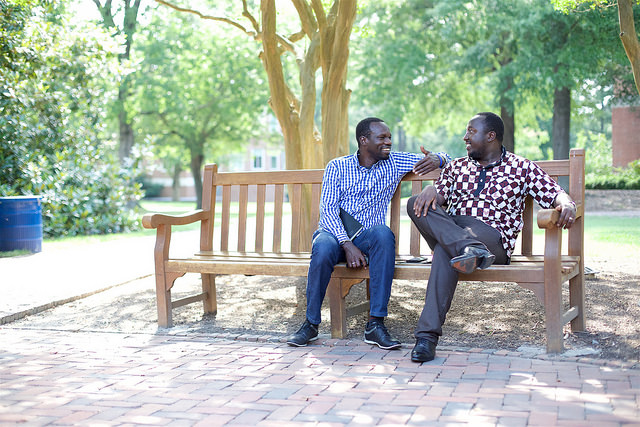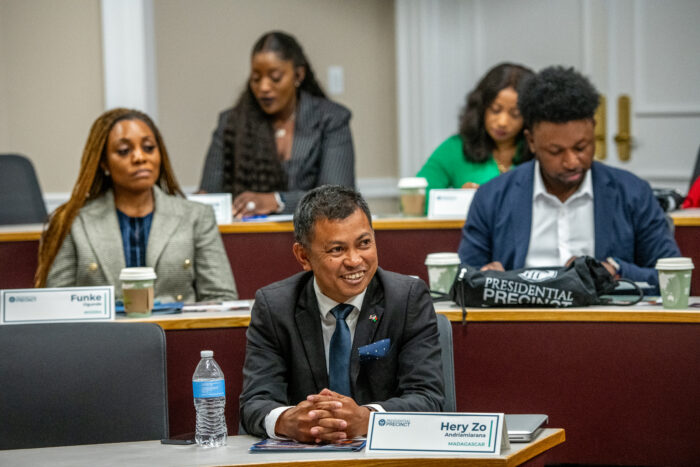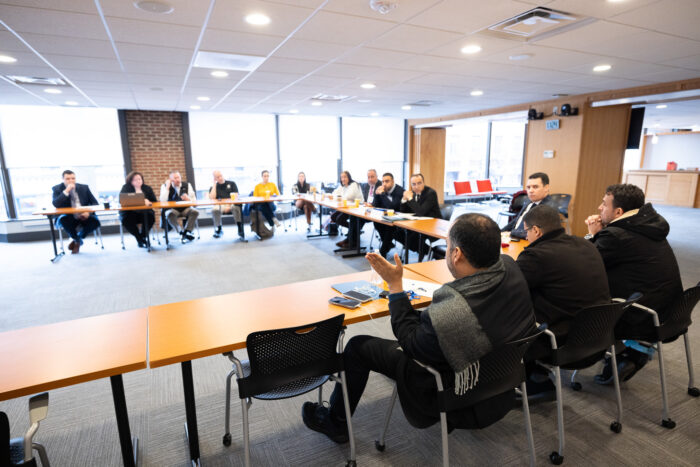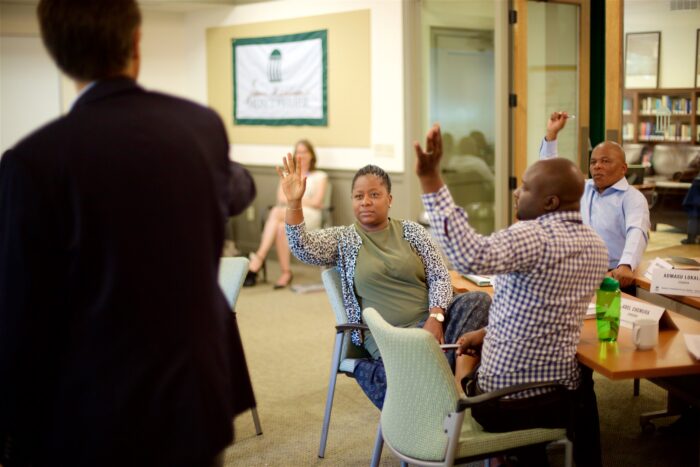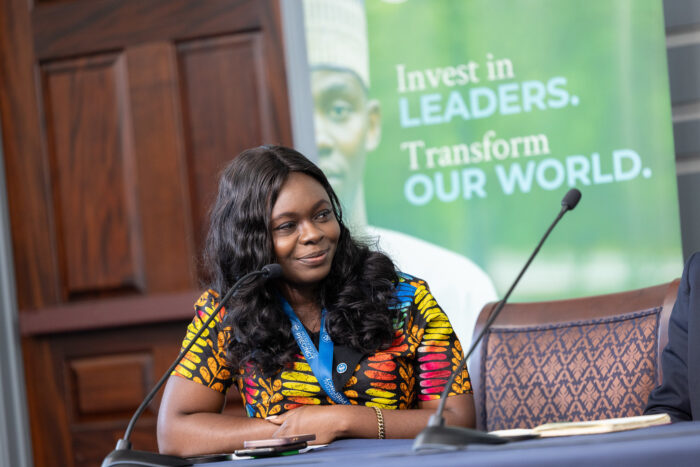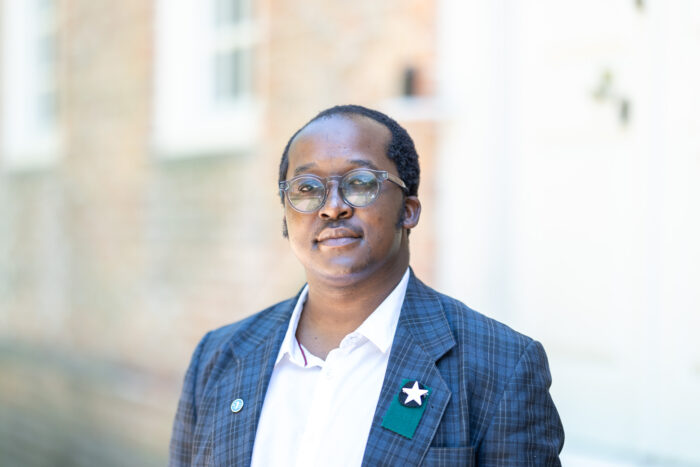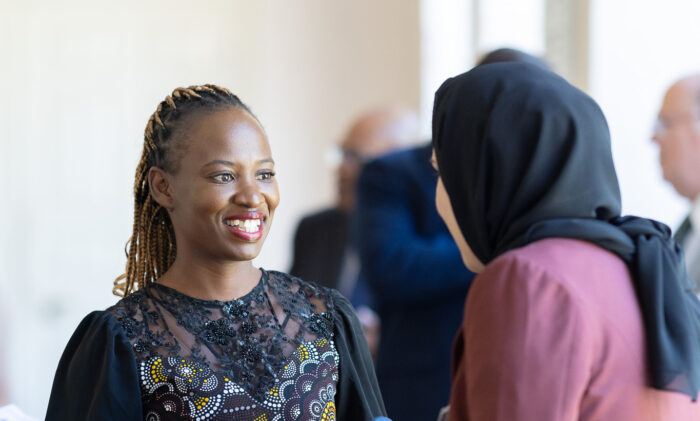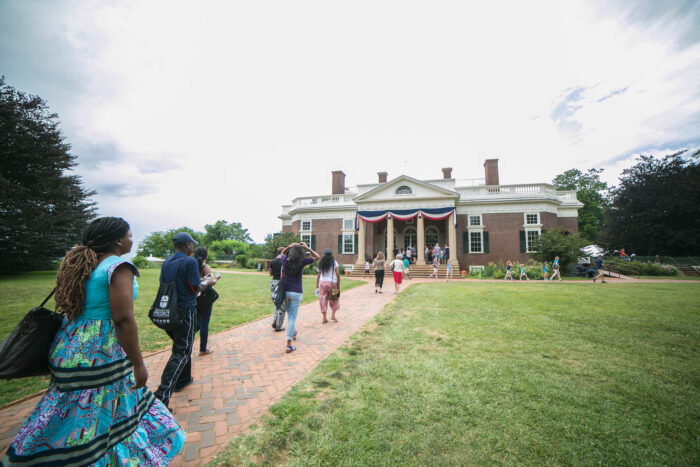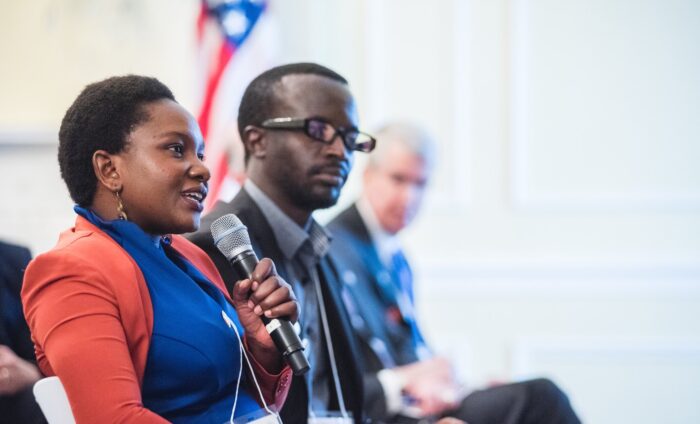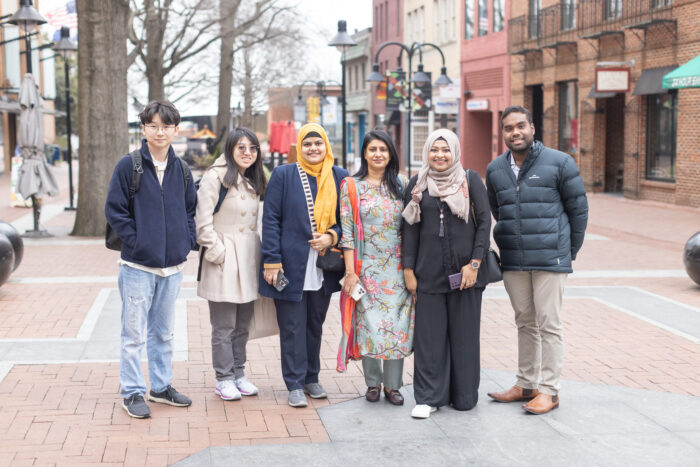Williamsburg a Hub for Africa's Best and Brightest
Originally published by the Virginia Gazette.
WILLIAMSBURG — An unplanned moment turned out to be a highlight for many of the African leaders visiting the College of William and Mary this week.
On Tuesday night, the fire alarm went off during dinner.
When the visitors shuffled outside, what they saw led to cheering and photos: a firetruck.
The Africans staying in Williamsburg are a mix of human rights lawyers, journalists, government officials and non-profit directors, all ages 21 to 35. They are studying at William and Mary for two weeks as part of the Mandela Washington Fellowship for Young African Leaders, and the site of the fire truck spurred conversation about how government ought to function.
Bukky Shonibare, from Nigeria, said most of the fellows had never seen rescuers respond promptly to an emergency. After the firefighters checked the building and determined it was a false alarm, several fellows posed with them for pictures.
“We just had to celebrate them, the responsiveness of the state to issues that affect the citizens. You can see how your tax dollars are being used,” said Shonibare. “If the fire department responded that quickly in Nigeria it would be headline news.”
Shonibare is a leader of the #BringBackOurGirls movement, an internationally recognized organization dedicated to rescuing 276 girls who were abducted from a school in Nigeria by the Boko Haram extremist group in 2014.
Her resume, as impressive as it is, does not stand out among the group of 25, which represents Africa’s “brightest, emerging civic leaders,” according to a William and Mary press release.
“We are truly blessed to have the chance to meet such amazing, dynamic young leaders from across the African continent,” said Stephen E. Hanson, Vice Provost for International Affairs and Director of the Reves Center for International Studies.
One thousand young African leaders are studying in America this summer as Mandela fellows at 40 sites. The group at William and Mary has spent time at the University of Virginia, Thomas Jefferson’s Monticello, James Madison’s Montpelier and James Monroe’s Highland. This is the third year the consortium, known as the Presidential Precinct, has hosted the fellows.
Lessons outside the classroom
The schedule in Williamsburg is packed.
The fellows arrived July 17, and their days have been crammed with sessions on how to create and measure social change.
But several fellows said just observing life in Williamsburg was as instructive as their time in the classroom. The swift response by firefighters is not the only thing that has made an impression.
Abdi Kassim is from Kenya where he gathers data from the border areas of Kenya, Somalia and Ethiopia to spot and prevent the radicalization of young people.
Kassim said he has appreciated how interested many Americans are in the topic of violent extremism, and he has appreciated the curiosity and friendliness of people in Williamsburg.
But after a visit to Merchants Square, he said he was also impressed by Williamsburg’s dedication to historic preservation.
“One thing that really struck me is the historical link. Where we come from, we don’t keep history,” he said. “When I go back I want to revise that kind of historical thing.”
Carol Mburugu, a constitutional trial lawyer in Kenya, said she was impressed with Williamsburg’s public transportation system. After taking the bus to Walmart, she said she wants her country to simplify its bus routes. She said in Kenya a simple trip can take hours.
Collaboration with local leaders
Thirteen community leaders, including Marisa Porto, publisher of the Daily Press Media Group which includes the Virginia Gazette, have been paired with the fellows to provide ideas on how to best implement their ideas for addressing issues in their homelands.
On Wednesday the fellows had their first meeting with their mentors.
James City County Attorney Adam Kinsman sat in the lobby of the Swem Library with Catherine Constantinides. Constantinides is from South Africa and writes children’s books, hosts a television and radio show and travels across the world advocating for environmental causes.
Constantinides told Kinsman about the difficulties of getting women involved in climate change activism, and she described visiting villages that had been decimated by drought.
Sitting next to her was Frederick Fussi, a chief executive officer of a consulting firm in Tanzania. Fussi talked to Kinsman about his work providing legislative and budget analysis for members of Tanzania’s parliament.
In the cafe, Paul Scott, the executive director of Williamsburg’s Child Development Resources, spoke to a group of fellows who were working on advocacy for people with disabilities. Scott highlighted some of the similarities between Africa and the United States when it comes to legislating change.
“You can pass all the laws you want, but if there are no funds and no one is willing to enforce it, it doesn’t matter,” he said.
Downstairs, Kassim sat with Angela Banks, a William and Mary law professor. Kassim said his conversation with Banks focused on how to use grassroots efforts rather than top-down approaches.
Afterward, Kassim said the two had a “very interactive conversation on linking peace to practice through policy.”
What’s next?
The fellows’ time in Williamsburg culminates on Thursday at the Stryker Center with the 2016 Africa Ideas Summit, which is free and open to the public, but tickets are limited. Each fellow will present solutions to some of their home nation’s problems in a five-minute Ted-style talk.
After that, the fellows will spend a couple days exploring Colonial Williamsburg before heading to Washington D.C. for a presidential summit with the 975 other Mandela Fellows.
The goal of the six weeks of study was summarized succinctly by Shonibare, who will be returning to Nigeria to continue her fight to rescue the kidnapped girls.
“You want to see things work,” she said. “You want to live in a place where things just work.”
—
Want to meet the fellows?
What: 2016 Africa Ideas Summit.
When: 9 a.m. on Thursday, July 28.
Where: Stryker Center – 209 North Boundary St., Williamsburg.
Cost: Free, but only a limited number of tickets are available. To reserve tickets go to bit.ly/2agbQBC.

